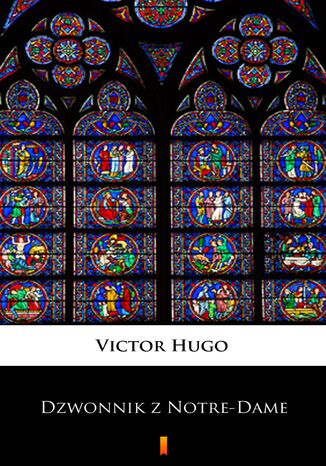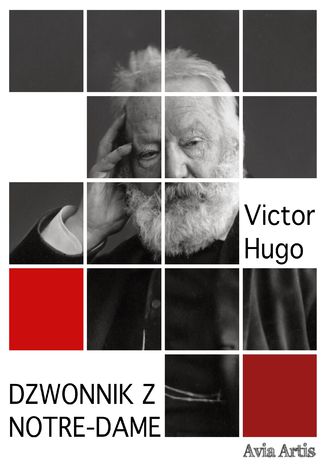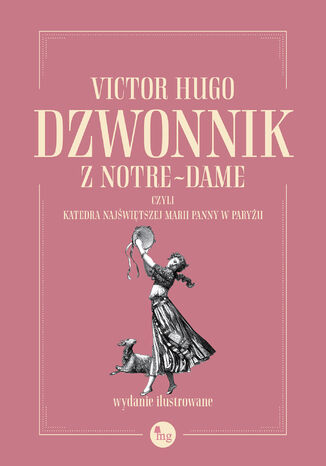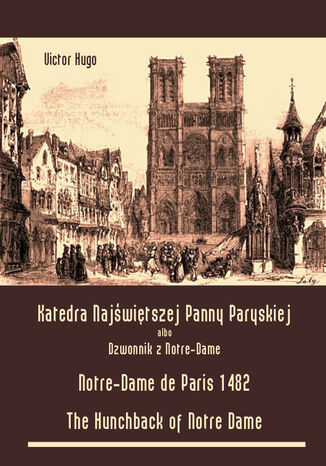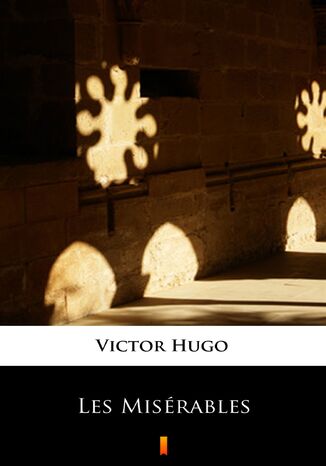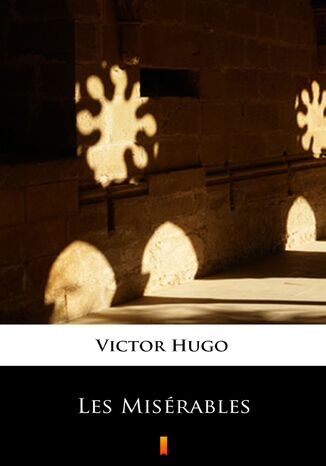Категорії
Електронні книги
-
Бізнес та економіка
- Біткойн
- Ділова жінка
- Коучинг
- Контроль
- Електронний бізнес
- Економіка
- Фінанси
- Фондова біржа та інвестиції
- Особисті компетенції
- Комп'ютер в офісі
- Комунікація та переговори
- Малий бізнес
- Маркетинг
- Мотивація
- Мультимедійне навчання
- Нерухомість
- Переконання та НЛП
- Податки
- Соціальна політика
- Порадники
- Презентації
- Лідерство
- Зв'язки з громадськістю
- Звіти, аналізи
- Секрет
- Соціальні засоби комунікації
- Продаж
- Стартап
- Ваша кар'єра
- Управління
- Управління проектами
- Людські ресурси (HR)
-
Для дітей
-
Для молоді
-
Освіта
-
Енциклопедії, словники
-
Електронна преса
- Architektura i wnętrza
- Безпека життєдіяльності
- Biznes i Ekonomia
- Будинок та сад
- Електронний бізнес
- Ekonomia i finanse
- Езотерика
- Фінанси
- Особисті фінанси
- Бізнес
- Фотографія
- Інформатика
- Відділ кадрів та оплата праці
- Для жінок
- Комп'ютери, Excel
- Бухгалтерія
- Культура та література
- Наукові та академічні
- Охорона навколишнього середовища
- Впливові
- Освіта
- Податки
- Подорожі
- Психологія
- Релігія
- Сільське господарство
- Ринок книг і преси
- Транспорт та спедиція
- Здоров'я та краса
-
Історія
-
Інформатика
- Офісні застосунки
- Бази даних
- Біоінформатика
- Бізнес ІТ
- CAD/CAM
- Digital Lifestyle
- DTP
- Електроніка
- Цифрова фотографія
- Комп'ютерна графіка
- Ігри
- Хакування
- Hardware
- IT w ekonomii
- Наукові пакети
- Шкільні підручники
- Основи комп'ютера
- Програмування
- Мобільне програмування
- Інтернет-сервери
- Комп'ютерні мережі
- Стартап
- Операційні системи
- Штучний інтелект
- Технологія для дітей
- Вебмайстерність
-
Інше
-
Іноземні мови
-
Культура та мистецтво
-
Шкільні читанки
-
Література
- Антології
- Балада
- Біографії та автобіографії
- Для дорослих
- Драми
- Журнали, щоденники, листи
- Епос, епопея
- Нарис
- Наукова фантастика та фантастика
- Фельєтони
- Художня література
- Гумор, сатира
- Інше
- Класичний
- Кримінальний роман
- Нехудожня література
- Художня література
- Mity i legendy
- Лауреати Нобелівської премії
- Новели
- Побутовий роман
- Okultyzm i magia
- Оповідання
- Спогади
- Подорожі
- Оповідна поезія
- Поезія
- Політика
- Науково-популярна
- Роман
- Історичний роман
- Проза
- Пригодницька
- Журналістика
- Роман-репортаж
- Romans i literatura obyczajowa
- Сенсація
- Трилер, жах
- Інтерв'ю та спогади
-
Природничі науки
-
Соціальні науки
-
Шкільні підручники
-
Науково-популярна та академічна
- Археологія
- Bibliotekoznawstwo
- Кінознавство / Теорія кіно
- Філологія
- Польська філологія
- Філософія
- Finanse i bankowość
- Географія
- Економіка
- Торгівля. Світова економіка
- Історія та археологія
- Історія мистецтва і архітектури
- Культурологія
- Мовознавство
- літературні студії
- Логістика
- Математика
- Ліки
- Гуманітарні науки
- Педагогіка
- Навчальні засоби
- Науково-популярна
- Інше
- Психологія
- Соціологія
- Театральні студії
- Богослов’я
- Економічні теорії та науки
- Transport i spedycja
- Фізичне виховання
- Zarządzanie i marketing
-
Порадники
-
Ігрові посібники
-
Професійні та спеціальні порадники
-
Юридична
- Безпека життєдіяльності
- Історія
- Дорожній кодекс. Водійські права
- Юридичні науки
- Охорона здоров'я
- Загальне, компендіум
- Академічні підручники
- Інше
- Закон про будівництво і житло
- Цивільне право
- Фінансове право
- Господарське право
- Господарське та комерційне право
- Кримінальний закон
- Кримінальне право. Кримінальні злочини. Кримінологія
- Міжнародне право
- Міжнародне та іноземне право
- Закон про охорону здоров'я
- Закон про освіту
- Податкове право
- Трудове право та законодавство про соціальне забезпечення
- Громадське, конституційне та адміністративне право
- Кодекс про шлюб і сім'ю
- Аграрне право
- Соціальне право, трудове право
- Законодавство Євросоюзу
- Промисловість
- Сільське господарство та захист навколишнього середовища
- Словники та енциклопедії
- Державні закупівлі
- Управління
-
Путівники та подорожі
- Африка
- Альбоми
- Південна Америка
- Центральна та Північна Америка
- Австралія, Нова Зеландія, Океанія
- Австрія
- Азії
- Балкани
- Близький Схід
- Болгарія
- Китай
- Хорватія
- Чеська Республіка
- Данія
- Єгипет
- Естонія
- Європа
- Франція
- Гори
- Греція
- Іспанія
- Нідерланди
- Ісландія
- Литва
- Латвія
- Mapy, Plany miast, Atlasy
- Мініпутівники
- Німеччина
- Норвегія
- Активні подорожі
- Польща
- Португалія
- Інше
- Przewodniki po hotelach i restauracjach
- Росія
- Румунія
- Словаччина
- Словенія
- Швейцарія
- Швеція
- Світ
- Туреччина
- Україна
- Угорщина
- Велика Британія
- Італія
-
Психологія
- Філософія життя
- Kompetencje psychospołeczne
- Міжособистісне спілкування
- Mindfulness
- Загальне
- Переконання та НЛП
- Академічна психологія
- Психологія душі та розуму
- Психологія праці
- Relacje i związki
- Батьківство та дитяча психологія
- Вирішення проблем
- Інтелектуальний розвиток
- Секрет
- Сексуальність
- Спокушання
- Зовнішній вигляд та імідж
- Філософія життя
-
Релігія
-
Спорт, фітнес, дієти
-
Техніка і механіка
Аудіокниги
-
Бізнес та економіка
- Біткойн
- Ділова жінка
- Коучинг
- Контроль
- Електронний бізнес
- Економіка
- Фінанси
- Фондова біржа та інвестиції
- Особисті компетенції
- Комунікація та переговори
- Малий бізнес
- Маркетинг
- Мотивація
- Нерухомість
- Переконання та НЛП
- Податки
- Соціальна політика
- Порадники
- Презентації
- Лідерство
- Зв'язки з громадськістю
- Секрет
- Соціальні засоби комунікації
- Продаж
- Стартап
- Ваша кар'єра
- Управління
- Управління проектами
- Людські ресурси (HR)
-
Для дітей
-
Для молоді
-
Освіта
-
Енциклопедії, словники
-
Електронна преса
-
Історія
-
Інформатика
-
Інше
-
Іноземні мови
-
Культура та мистецтво
-
Шкільні читанки
-
Література
- Антології
- Балада
- Біографії та автобіографії
- Для дорослих
- Драми
- Журнали, щоденники, листи
- Епос, епопея
- Нарис
- Наукова фантастика та фантастика
- Фельєтони
- Художня література
- Гумор, сатира
- Інше
- Класичний
- Кримінальний роман
- Нехудожня література
- Художня література
- Mity i legendy
- Лауреати Нобелівської премії
- Новели
- Побутовий роман
- Okultyzm i magia
- Оповідання
- Спогади
- Подорожі
- Поезія
- Політика
- Науково-популярна
- Роман
- Історичний роман
- Проза
- Пригодницька
- Журналістика
- Роман-репортаж
- Romans i literatura obyczajowa
- Сенсація
- Трилер, жах
- Інтерв'ю та спогади
-
Природничі науки
-
Соціальні науки
-
Науково-популярна та академічна
-
Порадники
-
Професійні та спеціальні порадники
-
Юридична
-
Путівники та подорожі
-
Психологія
- Філософія життя
- Міжособистісне спілкування
- Mindfulness
- Загальне
- Переконання та НЛП
- Академічна психологія
- Психологія душі та розуму
- Психологія праці
- Relacje i związki
- Батьківство та дитяча психологія
- Вирішення проблем
- Інтелектуальний розвиток
- Секрет
- Сексуальність
- Спокушання
- Зовнішній вигляд та імідж
- Філософія життя
-
Релігія
-
Спорт, фітнес, дієти
-
Техніка і механіка
Відеокурси
-
Бази даних
-
Big Data
-
Biznes, ekonomia i marketing
-
Кібербезпека
-
Data Science
-
DevOps
-
Для дітей
-
Електроніка
-
Графіка / Відео / CAX
-
Ігри
-
Microsoft Office
-
Інструменти розробки
-
Програмування
-
Особистісний розвиток
-
Комп'ютерні мережі
-
Операційні системи
-
Тестування програмного забезпечення
-
Мобільні пристрої
-
UX/UI
-
Веброзробка, Web development
-
Управління
Подкасти
Dzieło należy do klasyki literatury europejskiej. Akcja osadzona jest w Paryżu, w czasach późnego średniowiecza. Opowiada przede wszystkim o miłości archidiakona Klaudiusza Frollo do pięknej Cyganki Esmeraldy. Świadkiem skomplikowanej relacji jest adoptowany przez Klaudiusza Quasimodo, pełniący obowiązki dzwonnika słynnej katedry. Nie mniej ciekawe od głównego wątku jest tło bogaty, wielobarwny pejzaż Paryża, w którym jak w soczewce skupia się kultura średniowiecznej Europy.
„Dzwonnik z Notre-Dame” to powieść Victora Hugo osadzona w czasach późnego średniowiecza. Według słów samego autora, jest to „obraz piętnastowiecznego Paryża i całego piętnastego wieku przez pryzmat tego miasta”. Osią powieści jest wątek miłosny archidiakona Klaudiusza Frollo do pięknej Cyganki Esmeraldy. Powieść wydana w 1831 roku porusza nietypowe jak na tamte czasy problemy zgubnego pożądania i tolerancji. W powieści nie ma nic białego ani czarnego, są tylko odcienie szarości. Nie ma też tu jednoznacznie złej postaci, a nawet okrutne czyny Frolla można zrozumieć i budzi on współczucie, a nawet sympatię czytelnika.
Dzwonnik z Notre-Dame, czyli Katedra Najświętszej Marii Panny w Paryżu
Paryż, wiek XV. Centrum świata, kultury i polityki. Szczyt wysublimowania, bogactwa i dobrego smaku. A obok nędza, bezprawie, opresja. Złodzieje, prostytutki, cyganie i inni wykluczeni z blichtru wspaniałego miasta. Dwa światy równoległe, który przecinają się ze sobą albo pod szubienicą, albo na niej. Piękna cyganka i on - największy brzydal literatury, chromy i szpetny dziwak ciągający sznury dzwonniczych serc ku chwale Pana, który chyba odeń w podzięce dostał serce największe i najpiękniejsze... Bo czyż brzydota nie może kryć w sobie piękna? Klasyka literatury światowej, której nie można nie znać!!!
Han dislande est un roman fantastique de Victor Hugo ou mlent gothique et romantisme, le roman se ménage une place confortable. Caveaux funéraires, apprentis savants disséquant les morts, géant sanguinaire se jouant de la justice des hommes, ours polaire domestiqué... et Han, qui vit avec un ours et qui boit du sang humain. Un monstre, une révolte populaire, une ligne damours. Ce roman se semble dtre plein dinattendus!
Han dislande est un roman fantastique de Victor Hugo ou mlent gothique et romantisme, le roman se ménage une place confortable. Caveaux funéraires, apprentis savants disséquant les morts, géant sanguinaire se jouant de la justice des hommes, ours polaire domestiqué... et Han, qui vit avec un ours et qui boit du sang humain. Un monstre, une révolte populaire, une ligne damours. Ce roman se semble dtre plein dinattendus!
"Katedra Najświętszej Marii Panny w Paryżu powieść Wiktora Hugo znana w Polsce również pod tytułem Dzwonnik z Notre-Dame, osadzona w czasach późnego średniowiecza. Według słów samego autora, jest to obraz piętnastowiecznego Paryża i całego piętnastego wieku przez pryzmat tego miasta. Osią powieści jest wątek miłosny archidiakona Klaudiusza Frollo do pięknej Cyganki Esmeraldy. Książka wydana w 1831 roku porusza nietypowe jak na tamte czasy problemy zgubnego pożądania i tolerancji. W powieści nie ma nic białego ani czarnego, są tylko odcienie szarości. Nie ma też tu jednoznacznie złej postaci, a nawet okrutne czyny Frolla można zrozumieć i budzi on współczucie, a nawet sympatię czytelnika. Książka została napisana pod wpływem odnalezienia przez autora greckiego napisu (Przeznaczenie) na ścianie Katedry Notre-Dame. (https://pl.wikipedia.org/wiki/Katedra_Marii_Panny_w_Paryżu) Notre-Dame de Paris relve du genre du roman historique, qui est la mode au début du XIXe sicle16, de mme que la période du Moyen Âge qui suscite un intért nouveau de la part des écrivains et des potes partir des années 1820, sous l'impulsion d'auteurs comme Chateaubriand ou Madame de Staël. Le chapitre Paris vol d'oiseau , en particulier, présente une tentative de reconstitution historique du Paris de 1482. Mais Victor Hugo ne se considre pas comme tenu de respecter la vérité historique tout prix et n'hésite pas modifier le détail des faits et resserrer l'intrigue pour faire mieux ressortir le caractre de personnages historiques comme Louis XI ou pour mettre en avant sa vision de l'Histoire. En cela, il applique son roman les principes exposés dans un article propos de Walter Scott qu'il a publié en 1823, et o il affirme : j'aime mieux croire au roman qu' l'histoire, parce que je préfre la vérité morale la vérité historique . (https://fr.wikipedia.org/wiki/Notre-Dame_de_Paris_(roman) The novel's original French title, Notre-Dame de Paris (the formal title of the Cathedral) indicates that the Cathedral itself is the most significant aspect of the novel, both the main setting and the focus of the story's themes. With the notable exception of Phoebus and Esmeralda's meeting, almost every major event in the novel takes place within, atop, and around the outside of the cathedral, and also can be witnessed by a character standing within, atop, and around the outside of the cathedral. The Cathedral had fallen into disrepair at the time of writing, which Hugo wanted to point out. The book portrays the Gothic era as one of the extremes of architecture, passion, and religion. The theme of determinism (fate and destiny) is explored as well as revolution and social strife. The severe distinction of the social classes is shown by the relationships of Quasimodo and Esmeralda with higher-caste people in the book. Readers can also see a variety of modern themes emanating from the work including nuanced views on gender dynamics. For example, Phoebus objectifies Esmeralda as a sexual object. And, while Esmeralda is frequently cited as a paragon of purity this is certainly how Quasimodo sees her she is nonetheless seen to create her own objectification of the archer captain, Phoebus, that is at odds with readers' informed view of the man. (https://en.wikipedia.org/wiki/The_Hunchback_of_Notre-Dame)"
Dans les premieres pages on fait la connaissance de Jean Valjean. Au début il est un, mais puis écoeuré par sa propre noirceur, et grâce la générosité dun évque Fauchelevent il deviendra le bienfaiteur de certaines âmes sans titre ni fortune. Son destin croise le chemin de la pauvre Fantine, une mere qui est prte tout pour le bonheur de sa fille. Cette fille Cosette devient sa raison de vivre. Mais son passé le rattrape...
One of the best classic novels in world literature. Jean Valjean, Cosette, Gavrosh the names of the heroes of the novel have long become common nouns, the number of its readers for a century and a half since the publication of the book has not been reduced, the novel does not lose popularity. A kaleidoscope of people from all walks of life in French society in the first half of the 19th century, vivid, catchy characters, grotesque and romance, sentimentality and realism, a tense, exciting plot are the main reasons for the success of the Hugo book and they are also the main reasons for the frequent appeal to it of world cinema.

